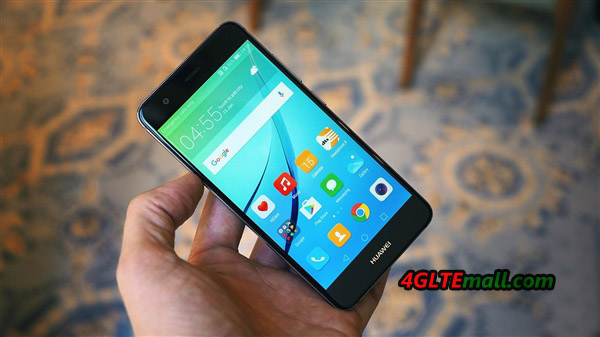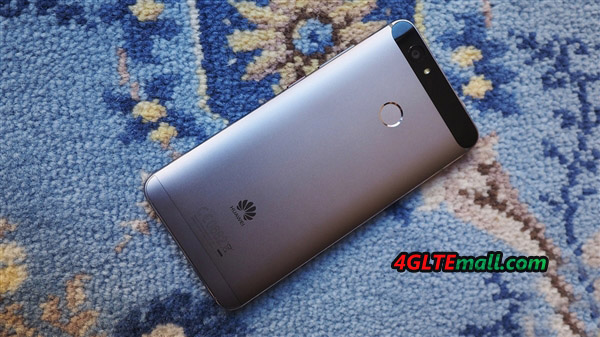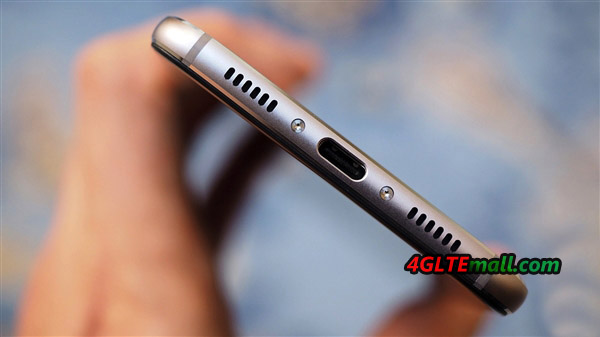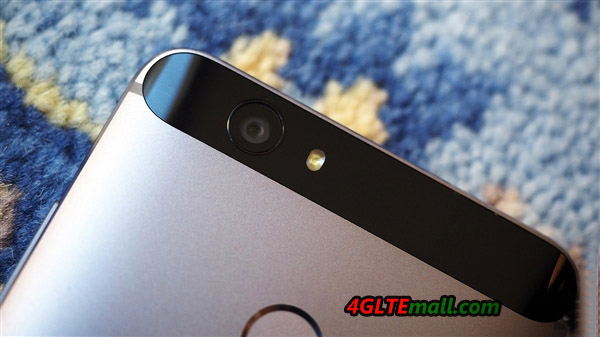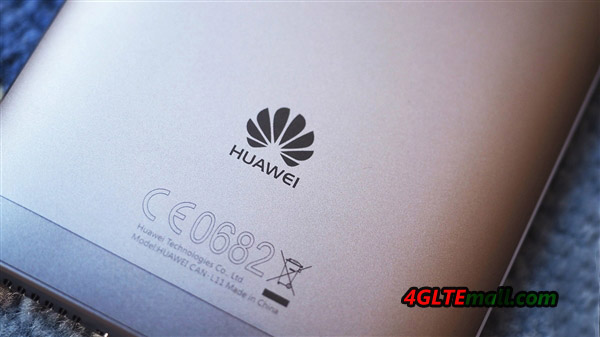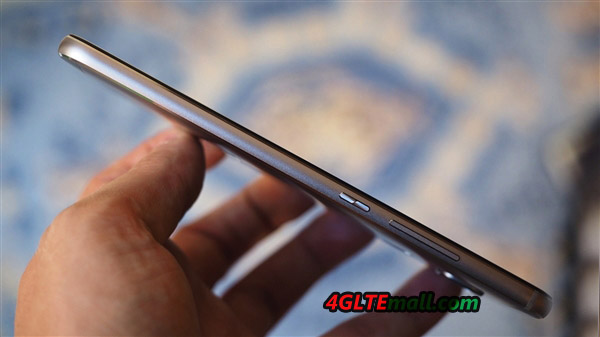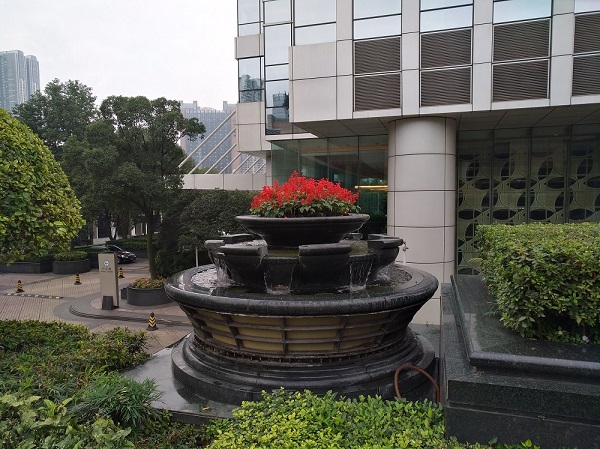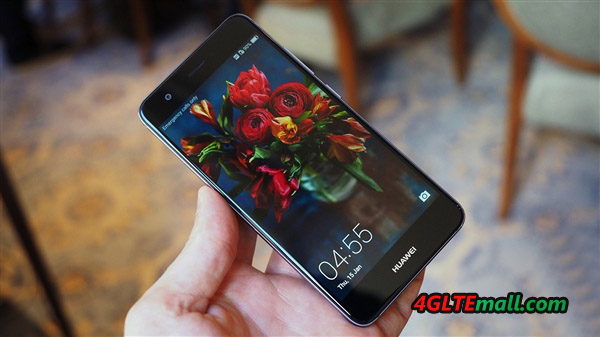At the IFA 2016 in Berlin, Huawei presented the Nova. The mid-class smartphone is intended to offer a very good equipment at a moderate price, which would be expected in the upper class. The basic data: a 5 inch full-HD display, a high-quality metal body, Octa-Core processor, 3GB RAM and 12 megapixel camera with 4K video recording. The Huawei Nova is also one of the medium size phones in current Android smartphones and would like to appeal especially to users; many other current devices are too large.
Smart and high quality
The Huawei Nova is delivered in a smart cardboard box. The foil, in which the nova is wrapped up, gives some initial information about setting up and using the SIM card format. In addition to the smartphone, you will also find a power supply unit with USB connection (output: 5V / 2A) as well as a USB Type C cable, which can be used both for charging and data transmission. A simple stereo headset is also included.
When I first had the Huawei nova in my hand, I was directly taken by the handy and high-quality case. The device consists largely of metal and is rounded to the sides. The display glass is also very rounded (“2.5D glass”) and is therefore not only chic, but also beautiful to touch. Maybe the nova with its 5 inch display is a little too small for some users, but for most users, it would be a good compromise of display size and handiness. A small detail is the nova often noticed: the power button is the only button on the edge with a thin red strip, which looks very beautiful according to the angle of view.
Highlight: the display!
Besides the successful design, the display is the absolute highlight for me at Huawei Nova. It is a 5 inch IPS display with a resolution of 1920 x 1080 pixels. The representation is extremely sharp and the colors are very lively. Due to the slight rounding to the edge and by the very good luminosity, the display sometimes appears as printed. By comparison with expensive high-end smartphones like the Apple iPhone 6s, Huawei Nova is still very compatitive!
Thanks to the Qualcomm Snapdragon 625 Octa-Core processor and 3GB memory, the operation is very smooth and fast – just as you would imagine. The nova is still based on Android 6, but an update to Android 7 will probably follow soon. I like the EMUI user interface very much personally, because it offers significantly more functions in contrast to the “pure” Android and comes without App Drawer, ie the individual app icons are stored on the start screens.
The unlocking of the display is secure and reliable thanks to the fingerprint sensor attached to the back. Now, of course, you can argue about whether a fingerprint sensor should be positioned on the front or on the back of a smartphone, but I personally find the sensor with the Nova on the back useful and practical.
Basically, I was very satisfied with the software on the Huawei Nova as I said, a negative point I have found in the Huawei EMUI 4.1 UX however: contacts cannot be filtered so that only contacts with telephone number are represented. So I have some contacts in my Google Account, which are stored only with e-mail address, which I would not listed in my Smartphone telephone book. Other smartphones – including older Huawei smartphones – offer this filter option, here Huawei should update to fix it.
Good camera with 4K video recording
The two cameras of the Huawei nova are widely advertised and are to score with a good picture quality as well as a large range of functions.
The rear-view camera offers a resolution of 12 megapixels in a 4: 3 aspect ratio, and it does not stand out from the case, but fits seamlessly into the glass cover, which also incorporates an LED flash and the NFC antenna. Compared to other current mid-class smartphones, the picture quality can really be seen, not only in sufficient (daylight) light, but also in darker environments. The images are sharp and colors are displayed naturally. If you want to get more out of the camera, you just have to leave the automatic mode and then you can make various settings in professional mode. This includes, for example, the ISO value or the trip time. With a tripod you can for example also easily realize long-term exposures. The operation of the camera software is basically very simple and uncomplicated and in addition to the professional mode, there are many other functions, such as for panoramic, HDR or slow motion shooting.
The following photos were taken with the back camera of Huawei Nova. Clicking on the picture opens the original photo. Tip: best open in a new browser tab!
The Huawei nova together with the sister device nova Plus is the first Huawei smartphone, which can record video in 4K UHD resolution. Up to now, Huawei devices could record a maximum of 1080p (Full HD). However, you have to configure this in the settings, because the device is only set to 720p HD.
The front camera has a resolution of 8 megapixels in the 4: 3 aspect ratios and is very good for selfsies. The picture quality is good and the software gives you various possibilities to influence “your own appearance”. For example, you can use a slider in 10 steps to adjust how much the image should be “after-treated”. The higher grades seem to me very artificial.
What I do not like is that both the frontcam and the rear camera are the 4: 3 image format of the sensors. Rather, the images are viewed directly on the smartphone display (16: 9 format), the PC screen (16: 9) or the TV (also 16: 9), but you have a black bar every time. Sure, you can adjust the image format manually in the settings, but then the full resolution of the sensor is not used and you have a smaller image section available.
LTE Cat7 with 300 MBit/s
The Qualcomm Snapdragon 625 chipset in the Huawei nova is a so-called SoC (system on a chip). In addition to the processor, further chipsets such as the modem are integrated. The modem is a Qualcomm Snapdragon X9, which supports not only GSM and UMTS with up to 42.2 Mbps but also LTE of category 7. With a suitable tariff, up to 300 MBit/s can be reached in the downlink, uplink theoretically up to 150 MBit/s are possible. The high LTE speed is made possible by the carrier aggregation technology, also known as channel bundling. This channel bundle can even be switched off in the settings of the Huawei nova – but there is no reason for the shutdown possibility.
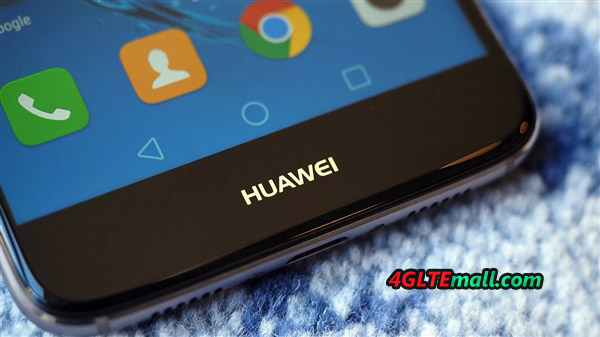
The reception in my test was perfect, especially in the LTE network around 1800 megahertz, which is extensively developed. The Huawei nova is also available in a dual SIM version. Network operators and service providers, on the other hand, offer the single SIM version, which has also been used for this test. In the case of the dual SIM version, you have to decide between the use with two Nano SIM cards and the use of a MicroSD memory card, because memory card and second Nano SIM use the same slot. Also note: only one of the two SIM cards can be used with UMTS and LTE, the other card is limited to 2G/GSM.
The voice quality in the telephone was perfect, both directly at the ear as well as over the integrated loudspeaker. The loudspeaker is also good for music playback, it provides a loud and clear sound, without overstepping.
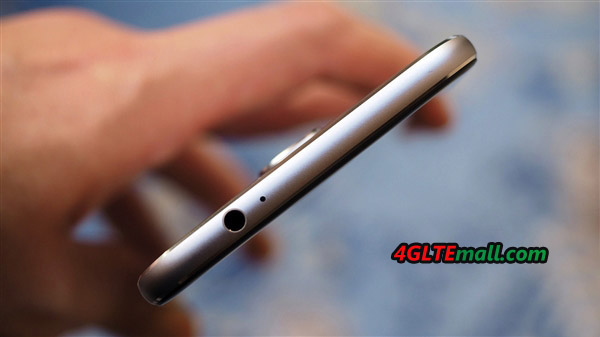
Of course, the Huawei nova also supports WLAN, but unfortunately only in the frequency range by 2.4 gigahertz. In the meantime, the support for dual-band WLAN in the 2.4 GHz and 5 GHz frequency range along with the current radio standard 802.11 ac would have been the case here for a high-level smartphone.
Battery pack
The battery in my test with normal to strong use always lasts a whole day, often even a little longer. For a full two days of use, it will be a bit tight, but for most users, the smartphone comes anyway every night, so the Huawei nova with its 3020 mAh capacity is definitely well equipped! By the way, the USB type C plug eliminates the usual trouble with the connection, since the plug can be plugged in both directions, which one very fast to appreciate.
Conclusion
Huawei Nova could become a huge success for Huawei since compact smartphones are in high demand and the choice of such devices is manageable. The nova is perfectly processed, is very good in the hand and offers a very good price-performance ratio. In particular, the display and the camera are convincing and could be installed in a more expensive premium-class smartphone.
It’s a pity that Huawei nova doesn’t support for WLAN in the 5 GHz frequency range and WLAN ac radio standard. Sometimes you may want the camera a slightly faster release time. At least the latter can might be improved through a firmware update in the future.
Actually, there is another mobile smartphone from huawei at the same level to Huawei nova: Honor 8. This provides even a little better equipment, however, is also slightly larger and has a glass back, so is more vulnerable to falls. If you want to know more Huawei new smartphones, welcome to check here: http://www.4gltemall.com/4g-lte-smartphone/huawei-4g-smartphone.html
